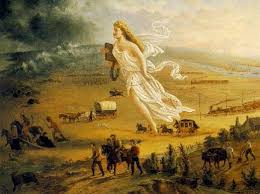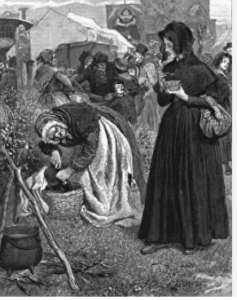Analysis and Critical Explanation of Of Death by Francis Bacon
Analysis
1. Death is a natural phenomenon. It is childish to fear it. Religious men think that death means passage to another to world where one will receive punishment for one’s sins, as death itself is accompanied by extreme pain and torture. But in some cases death comes with much less pain. In fact death seems to be more terrible than it really is on account of what accompanies it-groans, convulsions, discoloured face, friends he weeping, black dress, etc.
2. Violent passions enable a man to overcome death. Revenge, love, honour, grief, fear make him bold enough to meet death. Otho, the Roman Emperor killed himself when he heard the news of the defeat of his army, and many died in sympathy with him. Seneca, the philosopher says that a man may die merely because he is wearied of life.
3. Approaching death does not make any change in the good spirits of a man. Augustus Caesar died in peace, Kissing Livia and saying her good bye. Tiberius died dissimulating Emperor Vespasian died in good spirits. Golba breathed his last while giving orders to his men to strike hard at the enemy. Septimus Severns died while writing a message.
Death is as natural as birth, and birth is perhaps as painful to an infant as death to others. But death in an honest cause is painless just as a person in the heat of fight does not feel the wound he receives. A noble cause makes a man insensible to pain and torture. Besides, this death for a noble cause makes a man honoured and respected and remembered ever afterwards, though he was not loved while he was alive.
NOTES AND EXPLANATIONS
So is the other: so the fear of death is increased when people think and hear of it. Contemplation: thought. The Contemplation of……sin: the thought of death as if it is a means of punishment for the sins done in life. (According to the Bible, death is imposed on man to punish him for all the Sins of Adam and Eve.) Tribute: something paid in, acknowledgement of homage. Tribute due unto nature: which must happen according to the laws of human nature.
Meditation: deep thought. Vanity: empty pride; folly. Superstition: excessive fear or reverence based on ignorance. Yet in religious meditation…superstition: When we think of death from a religious point of view our ideas are based sometimes on wrong notions and sometimes on excessive fear or reverence based on ignorance. Friar: a member of one of the mendicant monastic orders in the Roman Catholic Church.
Mortification: subduing the passions and appetites by a severe or strict manner of living, self-denial, and discipline. Tortured: subjected to severe pain or suffering of the body. Corrupted: made putrid; decomposed. Dissolved: melted; destroyed as by fire; disintegrated. Vital: necessary to life; contributing to life. Quickest of sense: most sensitive to pain.
The most vital……sense: those parts of our bodies which are necessary to life are not always very sensitive to pain or torture. As a philosopher and natural man: i.e., one who contemplates life and death with a mind not influenced by religion but purely by reason. (The reference is to Seneca, a philosopher, who lived in the first century A.D.) Spake: spoke.
Pompa mortis magis terret, quam mors ipsa: it is the pomp of death that alarms us more than death itself, OR the solemn accompaniments of death are more fearful than death itself. (It is a quotation but a summary of a passage in Seneca, Epistle xxiv. And a quotation from Ovid’s “Metamorphoses”, a Latin poem from 8 AD.). Groans: agony of death. Convulsions: any involuntary contraction of the muscles of the body. Blacks: black dress worn on funeral occasions. Obsequies: funeral rites and solemnities.
Groans, Convulsions…… terrible: These are the accompaniments of death which make death more terrible. Worthy the observing: worth noting. Worth observing. Mates: overcomes; renders powerless. Masters: subdues. Attendants: servants. (The reference is to Revenge, Love, Honour, Fear etc.) Combat: fight; battle. Of him: of death. When a man hath……of him: When a man has violent passions of revenge, love, honour etc, he comes off successful in overcoming the fear of death.
Triumphs over: conquers. Slights: does not care for. Aspire to: to desire eagerly; to aim at higher things. Preoccupatch: anticipates. Otho: emperor at Rome from 15th January to the 16th April in A.D. 69. He stabbed himself to death on hearing that his army had been defeated at Bedriacum by the forces of Vitellius. Tenderest: most loving; most delicate.
Affection: attachment; love. Provoked: excited, prompted. Compassion: pity; sorrow for the suffering of another. Pity which is the tenderest of affections……followers: When Emperor Otho committed suicide, many of his very faithful followers killed themselves as sympathy with him being prompted to do so by pity which is the most delicate of attachments.
Cogita guamdiu feceris; mori velle, non tantum fortis aut miser, sed etiam fastidiosus potest: This is a quotation taken form Seneca. (Think how long thou hast done the same thing; not only a valiant man or a miserable man but also a fastidious man is able to wish for death). [Men may wish for death as they feel that their lives get repetitious. This wearies them and they will desire the perceived release of death, though they are neither in misery nor are they courageous and honourable].Consider how long you have done the same things; a man may be willing to die not only because he is brave or unhappy, but just because he is wearied of life.
Vallent: brave. Weariness: a state of being tired. Alteration: change. Upon a weariness: being tired of. Augustus Caesar: Nephew of Julius Caesar, died on the 19th August, A.D. 14. His death was sudden. Died in a compliment: while expressing love and praise for. Livia: wife of Augustus.
Livia Conjugif nostri memior, vive et vale: “Livia good bye; live and remember our married life.” Tiberius: the successor of Augustus to the Roman Empire, Dissimulation: false pretensions; hypocrisy, a hiding under a false appearance. In dissimulation: died in hypocrisy; died in a state of false pretension.
Jam Tiberium vires et corpus, non dissimulatio, deserebant: “his bodily strength was leaving Tiberius, but not his habit of dissimulation” Dissimulation means concealing one’s thoughts or true character. During his rule, Tiberius never revealed himself truly, and even practised this dissimulation up until his death, never revealing the steady decline of his health. Bacon uses this example to show that even as death approached Tiberius, the man remained the same. Tiberius died on the 16th March, A.D. 37. Tacitus: Roman historian who died in 54 AD.
Vespasian: Roman Emperor who ruled from 69 to 79 A.D. Ut puto Deus flo: “Methinks I am becoming a God” (Roman emperors after death were deeified and received the title of Divus) Galba: Roman Emperor, who was killed in 69 A.D. after a years rule. Feri, si ex re sit populi Romani: Strike, if it be for the good of the Romans, giving himself up for his country at the hands of Otho. Septimius Severus: Roman Emperor who conquered parts of England and died in 211 A.D. at York (England). In dispatch: died while writing a message.
Adeste si quid mihi restat agendum: Be at hand, if there is anything more for me to do. He said this to his sons as his reign was cut short by his illness. The goodness of his spirit and his care for the Roman people did not diminish as even in his last moments he told his sons to be ready to do any work that he had left incomplete.
Stoics: followers of philosopher Zeno. He made virtue the highest good and laid stress on the control of passions, and indifference to pleasure and pain. Bestowed too much cost upon death: The stoics attached too much importance to death. Saith: said. He: refers to the Roman poet Juvenal, a satirist, who lived in the first Century B.C.
qui finem vitæ extremum inter munera ponat naturæ.: “Who can rank the last end of life among the blessing of nature.” which means that it is as natural to die as it is to be born. The prerequisites of life are birth and death. Bacon ends with the assertion that the man who dies having lived a life of commitment and hard work, like the soldier who dies on the battlefield,does not feel the pain of death as their mind is fixed on something good, like their honour or their accomplishments. They are not subject to the grief or agony of death as their mind is on a higher plane.
He that dies in an earnest……hurt: One who dies for a noble cause does not feel the pangs of death, just like a person who is wounded in the heat of battle and for a time does not feel the pain of the wound. Avert: ward off. Dolors of death: the pain or suffering of death. Canticle: a song.
Nunc dimittis: Now lettest thou … depart. This hymn is one of willingly acceptance of death after living a gratifying life, and meeting all expectations. Death opens the door to reputation and weakens envy because when one dies, people no longer think about their misconduct, and instead are soft to a fault, and uplift them as much as they can. The adherence to the rule of “Speak well of the dead” results in people being made to seem much better than they were, and thus they are memorialized in good fame. Extinguisheth: destroys; puts it out.
Extinctus amabitur idem: The same (who in life so hated) will be loved when dead or [The same man that was envied while he lived, shall be loved when he is gone]. The man who, in his life, was hated and envied and insulted by those jealous of him, will be praised and loved and spoken well of in his death. Those who envied him will cease to speak badly of him, and so extinguish their envy.
#Analysis and Critical Explanation of Of Death by Francis Bacon #Analysis and Critical Explanation of Of Death by Francis Bacon #Analysis and Critical Explanation of Of Death by Francis Bacon #Analysis and Critical Explanation of Of Death by Francis Bacon
#Analysis and Critical Explanation of Of Death by Francis Bacon #Analysis and Critical Explanation of Of Death by Francis Bacon #Analysis and Critical Explanation of Of Death by Francis Bacon #Analysis and Critical Explanation of Of Death by Francis Bacon #Analysis and Critical Explanation of Of Death by
Francis Bacon #Analysis and Critical Explanation of Of Death by Francis Bacon #Analysis and Critical Explanation of Of Death by Francis Bacon #Analysis and Critical Explanation of Of Death by Francis Bacon #Analysis and Critical Explanation of Of Death by Francis Bacon #Analysis and Critical Explanation of Of Death by Francis Bacon #Analysis and Critical Explanation of Of Death by Francis Bacon #Analysis and Critical Explanation of Of Death by Francis Bacon #Analysis and Critical Explanation of Of Death by Francis Bacon #Analysis and Critical Explanation of Of Death by Francis Bacon #Analysis and Critical Explanation of Of Death by Francis Bacon
Read More
Of Death — Francis Bacon (Text)
Of Truth Critical Analysis by Sir Francis Bacon
Of Truth by Francis Bacon Summary
Visit Us on our Facebook Page:




